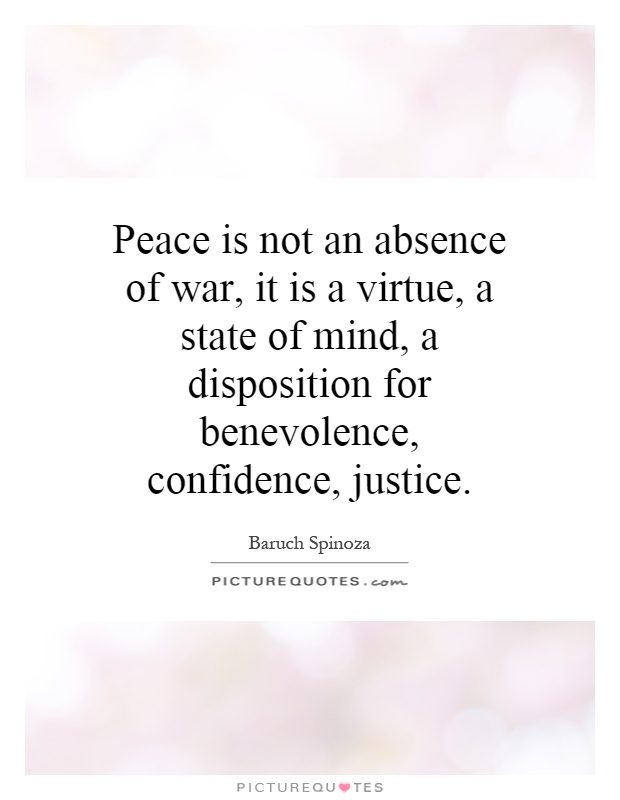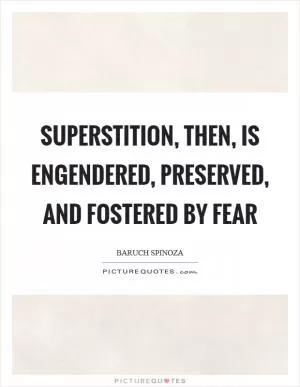Peace is not an absence of war, it is a virtue, a state of mind, a disposition for benevolence, confidence, justice

Peace is not an absence of war, it is a virtue, a state of mind, a disposition for benevolence, confidence, justice
Baruch Spinoza, a renowned philosopher of the 17th century, believed that peace was not simply the absence of war, but rather a virtue that encompassed a state of mind and a disposition for benevolence, confidence, and justice. Spinoza's philosophy on peace was deeply rooted in his belief in the interconnectedness of all things and the importance of living in harmony with oneself and others.For Spinoza, peace was not just a temporary state of tranquility, but a way of being that required a commitment to virtuous actions and a mindset of benevolence towards others. He believed that true peace could only be achieved through a deep understanding of oneself and a willingness to cultivate a sense of empathy and compassion towards others. This required a disposition for justice, where individuals were committed to treating others with fairness and respect, regardless of their differences.
Spinoza also emphasized the importance of confidence in achieving peace. He believed that a sense of inner strength and self-assurance was essential for maintaining peace in the face of adversity. By cultivating a mindset of confidence, individuals could navigate challenges and conflicts with a sense of calm and resilience, ultimately contributing to a more peaceful society.
Furthermore, Spinoza believed that peace was closely tied to the concept of justice. He argued that true peace could only be achieved when individuals were committed to upholding principles of fairness and equality. This required a willingness to confront injustice and work towards creating a more just and equitable society for all.












 Friendship Quotes
Friendship Quotes Love Quotes
Love Quotes Life Quotes
Life Quotes Funny Quotes
Funny Quotes Motivational Quotes
Motivational Quotes Inspirational Quotes
Inspirational Quotes